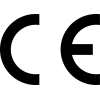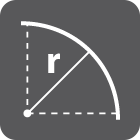FTS29OM16 PH120
Fire resistant and LSZH
Marcatura
<meters> CE SPECIALCAVI BALDASSARI FTS29OM16 PH120 100/100V <formation> EN 50200 CEI 20-105 C-4 (U0=400V) <lot> <year> CCA-S1B,D1,A1
Manufacturing characteristics
Core
Flexible bare copper, class 5
Insulation
LSZH thermoplastic compound, S29 type
Stranding
Cores twisted/stranded in concentric layers
Outer sheath
LSZH thermoplastic compound, M16 type
Colours
Cores identification:
2 cores = Red + Black
4 cores = Red + Black + White + Blue
Outer sheath colour:
Violet (based on RAL 4005)
Electrical characteristics
Tensione di esercizio anime
100/100V
Tensione di esercizio guaina esterna
100/100V C-4(U0=400V)
Tensione di prova
2000V
Certifications




Standard
CEI 20-29 IEC 60228
CEI 20-11
CEI EN 60332-3-24 Cat.C IEC 60332-3-24 Cat.C
CEI 20-105:2024 CEI UNEL 35338
CEI 20-36/4-0 EN 50200 (Durata test 120 min. PH120)
CEI UNEL 36762
UNI 9795:2021
Reaction to Fire Class
EN 50575:2016 Cca - s1b,d1,a1
Temperature
Temperatura minima di esercizio
-25°C
Temperatura massima di esercizio
+70°C
Temperatura massima cortocircuito
+160°C
On request
- Customized cores identification/outer sheath colours
- Reinforced outer sheath for underground laying in duct
Laying conditions

Minimum installation temperature 0°

Laying operation bending radius d14

Max tensile stress: 50N/mm^2 of the copper cross-section

Fixed Laying

In duct or cable tray

The cable stored outside must be protected from UV rays
Applications
Cable conforms to the requirements in the Construction Products Regulations (CPR EU 305/11), aimed at limiting the production and diffusion of fire and smoke.
LSZH cable for voice evacuation systems, fire-resistant (PH120) according to CEI 20-105: 2024, CEI UNEL 35338 and UNI 9795:2021. This cable, if it’s used to supply power to category 0 systems (nominal voltage less than or equal to 50V AC, or 120V non-inverted DC), it can also be installed in coexistence with 450/750V or 0.6/1kV power cables that supply 230/400V nominal voltage loads. It doesn’t exclude problems from possible elctromagnetic interferences.
If stored outdoors, the cable must be protected from UV rays.
Underground laying is not permitted, even if protected.
